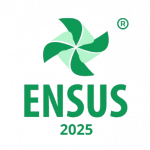ORGANIZING COMMITTEE
General Organizing Committee:
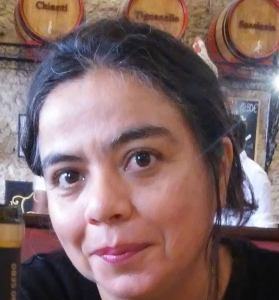 |
Lisiane Ilha Librelotto, ENSUS project coordinator, Post-Doctorate in Sustainable Construction (IPLeiria/ESTG-Leiria/Portugal, 2019), PhD in Production Engineering (UFSC, 2005), Master in Production Engineering in the area of Technological Assessment and Innovation (UFSC, 1999 ), Specialist in Quality Management (UFSM, 1997) and Civil Engineer (UFSM, 1995) | 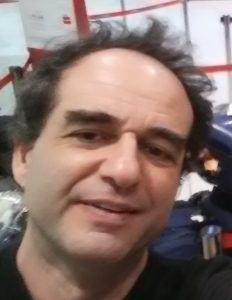 |
Paulo César Machado Ferroli, ENSUS project coordinator, Post-doctorate in Ceramic Design (IPleiria/Portugal, 2019); PhD in Production Engineering (UFSC, 2004), Master in Production Engineering in the area of Product Design (UFSC, 1999), Specialist in Quality Management (UFSM, 1997) and Mechanical Engineer (UFSM, 1995) |
Organizing Committee – Line 1 – Engineering
Focus: Production Engineering and Knowledge Management
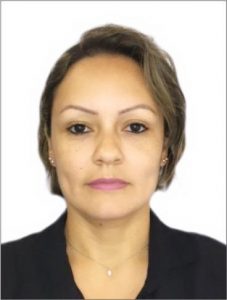 |
Caroline Rodrigues Vaz, Assistant Professor at the Department of Production and Systems Engineering (EPS-UFSC) and at the Graduate Program in Production Engineering (PPGEP-UFSC). Coordinator of the SINERGIA group (Sustainability and Innovation in Renewable Energy of EPS/UFSC). Post-Doctorate in Production Engineering with emphasis in Renewable Energies (PPGEP/UFSC, 2018), PhD in Production Engineering (UFSC, 2016), Master in Production Engineering in the area of Operational Management (UTFPR, 2010), Specialist in Industrial Management in the area of Production and Maintenance (UTFPR, 2009), Specialist in Scientific and Technological Education (UTFPR, 2008) and Food Technologist (UTFPR, 2007). Research productivity scholarship level 2 (CNPq). |  |
Mauricio Uriona Maldonado, PhD (2012) and Master (2008) in Engineering and Knowledge Management, both from UFSC, and Industrial Engineer (2004) from the Military School of Engineering (Bolivia). His research interests are related to the energy transition in the energy and transportation sectors. He is an Extraordinary Associate Professor at the University of Stellenbosch (2023-2025, South Africa), Associate Professor in the Department of Production and Systems Engineering (EPS-UFSC) and in the Postgraduate Program in Production Engineering (PPGEP-UFSC). He is vice-leader of the Sustainability and Innovation Group in Renewable Energies (Sinergia-UFSC) and a Level 2 Research Productivity Scholarship (CNPq) |
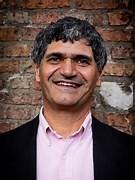 |
Gregório Varvakis, He holds a degree in Mechanical Engineering from the Federal University of Rio Grande do Sul (1979), a master’s degree in Production Engineering from the Federal University of Santa Catarina (1982) and a PhD in Manufacturing Engineering from Loughborough University of Technology (1991). He is currently a full professor at the Federal University of Santa Catarina, Department of Knowledge Engineering, teaching undergraduate courses (Engineering and Economics) and postgraduate courses in Engineering, Knowledge Management and Media, and Information Science. He has experience in Management, with an emphasis on Process Management, Knowledge Management, and Service Organization Management, working mainly on the following topics: innovation, knowledge management, service management, productivity, continuous improvement, information technology, and information flow. |
Focus: Civil Engineering
 |
Berenice Martins Toralles – coordinator of the project 3D PRINTING FOR HOUSING FOR PEOPLE IN VULNERABLE CONDITIONS – project funded by the government of the state of Paraná. Post-doctorate from the Polytechnic University of Catalunya, Barcelona, Spain in the area of ultra-high performance cementitious materials. PhD from the Polytechnic University of Catalunya, Barcelona, Spain in the area of high-performance concrete. Master in Civil Engineering from the Federal University of Rio Grande do Sul (NORIE). Specialist in Higher Education from the Federal University of Rio Grande do Sul. Graduated in Civil Engineering from the Catholic University of Pelotas-RGS. CNPq productivity scholarship holder. | 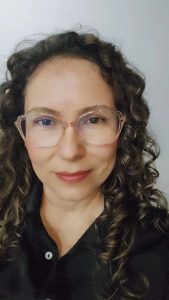 |
Cláudia Queiroz de Vasconcelos, coordinator of the ENSUS 2022 project, Post-Doctorate in Architecture and Urbanism (UFSC, 2022), Doctorate in Architecture and Urbanism (UFSC, 2017), Master in Architecture and Urbanism (UFSC, 2011) and Urban Architect (UNINILTON LINS, 2008); |
 |
Bibiana Zanella Ribeiro, PhD student in Architecture and Urbanism at PósArq (UFSC), Master in Environmental Sciences (UFT, 2017), Specialist in Production Engineering (ULBRA, 2014) and Graduated in Civil Engineering (FURG, 2010). |
Focus: Engineering / general sustainability
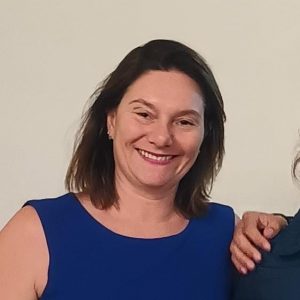 |
Rachel Faverzani Magnago, Post-doctorate in Architecture and Urbanism from PósArq-UFSC, PhD in Organic Chemistry (UFSC, 2002), Master in Organic Chemistry (UFSC, 1996) and Industrial Chemistry (UFSM, 1993). Conducts research and development of bioproducts in the areas of engineering and others. With a solid academic and professional trajectory, her work stands out in the areas of development and characterization of materials, with an emphasis on sustainability, durability and application of innovative materials in civil construction. Throughout her career, she has coordinated several research projects related to the optimization of processes and materials, aiming at reducing environmental impacts. In addition, she is an advisor for undergraduate and graduate work, contributing significantly to the training of new professionals in the area of engineering and sustainable materials. | 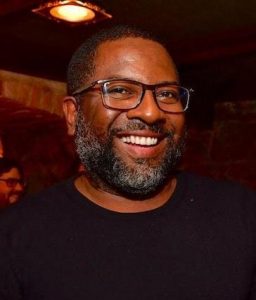 |
Joel Dias da Silva – Coordinator of the Postgraduate Program in Environmental Engineering at FURB Universidade Regional de Blumenau. Post-doctorate in Environmental Engineering (PNPD/CAPES, 2012), PhD in Environmental Engineering (UFSC, 2007), Master in Environmental Engineering (UFSC, 2002), Sanitary and Environmental Engineer (UFMT, 1999) |
Organizing Committee – Line 2 – Architecture and Urbanism
 |
Tomás Queiroz Ferreira Barata, Post-Doctorate in Architecture and Urban Planning Technology (USP, 2014), PhD in Civil Engineering (UNICAMP, 2008), Master in Architecture and Urban Planning (USP, 2001) and Architect (USP, 1993). Professor of the Design course at USP | 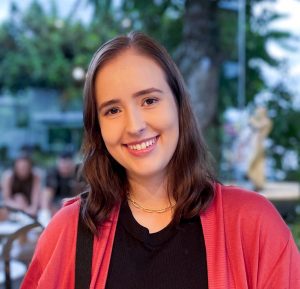 |
Ernestina Rita M. Engel, PhD student in Architecture and Urbanism at PósArq-UFSC. Master in Architecture and Urbanism (UFSC). Specialization in Smart Cities: Technology and Innovation (UPF). Graduated in Architecture and Urbanism (UFFS). Researcher and collaborator at the Environmental Laboratory (LabAm/UFG) and member of the Virtuhab Research Group (UFSC). |
 |
Gabriela Willemann Sivieiro Máximo, Post-Doctorate in Architecture and Urbanism (UFSC – 2023); PhD in Civil Engineering (UFSC – 2018); Master in Architecture and Urbanism (UFSC – 2013); Specialist in Sustainable Cities, BIM and Sustainable Architecture; Architect and Urban Planner (Unisul – 2004). Post-doctorate researcher at PósARQ/UFSC and member of the Virtuhab/UFSC Research Group; professor of the Architecture and Urbanism Course at Estácio University Center of Santa Catarina and in the Civil Engineering Department of CCT/UDESC. |
Organizing Committee – Line 3 – Design
 |
Adriane Shibata Santos, PhD in Design (PUC-Rio) and Master in Health and Environment (Univille), with a specialization in Product Engineering and Design (PUC-Pr) and a degree in Industrial Design (UFPR). Researcher in the areas of design and urban context, sustainability, service design, design management and innovation and professor in the Postgraduate Program in Design at Univille, in the specialization and undergraduate programs in Design at Univille. She has worked for over 20 years in different areas of design, with emphasis on product design, design management and strategic design. She has patents and industrial design registrations in her name and has received design awards, such as Brasil Faz Design, Objeto Brasil and IF Design. | 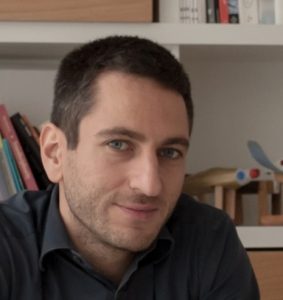 |
Carlo Franzato, designer and associate professor at the Department of Arts and Design at PUC-Rio. He specializes in strategic design and focuses his work on the scope of socio-environmental transition. In this direction, he studies and develops participatory processes for constructing scenarios, inspired by ecology and oriented towards futures of conviviality and sustainability. |
 |
Cristiano Alves, PhD in Mechanical Engineering from the University of Lisbon, Master and Bachelor’s degrees in Design from the São Paulo State University (UNESP). Member of the research groups IN+ Center for Innovation, Technology and Policy Research (University of Lisbon) and LOGO Group (UFSC). He has experience as an automotive designer (Mercedes Benz do Brasil), design manager (Maquinas Agrícolas Jacto) and R&D director (Ancel – Tecnologia em Compostos). He is currently an associate professor of the design course at the Federal University of Santa Catarina (UFSC) and professor of the Professional Master’s program in Science, Technology and Innovation at UFRN (PPGCTI). |  |
Andre Mol, Designer and professor at the Institute of Arts and Design at UFJF. Specialist, master and doctor in design. Focuses his activities on themes related to Territory and Sustainability, addressing in particular: Packaging (materials, reuse and recycling); Food, Culture and Design (historical, anthropological and design aspects); Graphic Design (project, methodology and professional performance). |
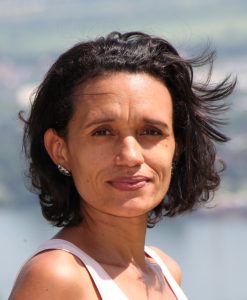 |
Germannya D. Garcia Araújo Silva, PhD in Mechanical Engineering. Master in Production Engineering. Specialist in Ergonomics and Product Design, all from the Federal University of Pernambuco (UFPE). Specialist in Neuroscience from the Institute of Educational Development (IDE). Associate Professor at the Design Center of the Agreste Campus (CA) / UFPE. Permanent member of the Graduate Program in Design at the Center for Arts and Communication (CAC) / UFPE. Researcher at the Design Laboratory O Imaginário and the Laboratory of Special Ceramics, both at UFPE. Founding member of READE – Network of Advanced Studies in Design and Emotion. She has experience in projects involving the relationship between Design and Ergonomics and Materials Technology. Her main areas of interest are: Sustainability Design; Materials Design and Manufacturing Processes; Health and Well-being Design. |  |
Karine Freire, Senior postdoctoral visiting researcher at FAPERJ in the Ecotopias laboratory of the DAD at PUC-Rio. PhD in Design, she has worked for over 18 years in the area of Strategic Design and Social Innovation. Currently, she directs her work to the ontologies of the global south for regenerative design. She studies the relationship between Design and Spirituality to expand our capacity to decolonize our imagination and feelthink pluriversal futures. |
 |
Vicente de Paulo Santos Cerqueira, Industrial Designer and PhD in Polymer Science and Technology. Associate Professor at EBA/UFRJ and ESDI/UERJ. As research activities, he develops studies and research related to Technological Management of production systems, with an emphasis on technological innovation strategies that integrate the themes of materials, environment and health. |  |
Ana Veronica Pazmino, degree in Industrial Design from the Federal University of Rio de Janeiro (1993); Master’s degree in Production Engineering from the Federal University of Santa Catarina (1999); PhD in Design from PUC-RJ (2010). He is an associate professor at the Federal University of Santa Catarina (UFSC). |
Organizing Committee – Line 4 – IV Brazilian Forum on Bionics and Biomimetics
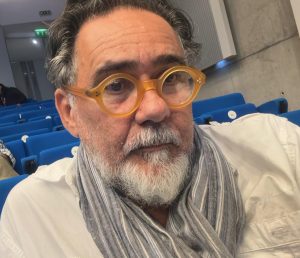 |
Amilton J. V. Arruda, Graduated in Industrial Design – Product Design from UFPE (1982), Master in Design and Bionics from IED in Milan (1992), Doctorate in Ricerca in Disegno Industriale – Ph.D. from the Polytechnic University of Milan (2002) and post-doctorate in Design and Bionics at IADE European University UNIDCOM Lisbon (2018/2019) and Luigi Vanvitelli Naples – IT (2020/2021). Since 1985 he has been a professor of the Design Course at UFPE. He is currently a Full Professor, teaching the Postgraduate Program in Design PPGD at UFPE. He coordinates the Research Group in Biodesign and Industrial Artifacts at UFPE. Experience in the area of Industrial Design, with an emphasis on Design and Bionics. He has published 7 books in the field of bionics and biodesign. | 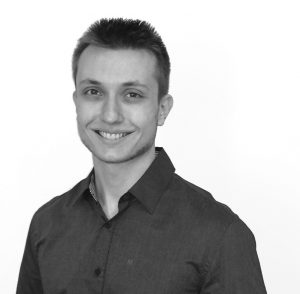 |
Felipe Palombini, Professor at the Department of Industrial Design at the Federal University of Santa Maria (DI/UFSM). Permanent Professor of the Postgraduate Program in Architecture, Urbanism and Landscaping (PPGAUP/UFSM), in the area of Technologies and Sustainability. Researcher and Coordinator of the Laboratory of Innovation and Sustainability in Design (NOVA Lab), a CNPq-certified group, in the areas of Design and Sustainability, Digital Manufacturing and 3D Technologies. He is a guest editor in the book series “Environmental Footprints and Eco-design of Products and Processes”, published by SPRINGER-NATURE, having published books related to Sustainability, Materials, Bionics, Ecodesign of Products and Processes. PhD and Master in Design, with emphasis on Design and Technology, from the Postgraduate Program in Design at the Federal University of Rio Grande do Sul (PGDesign/UFRGS). He completed a Post-Doctorate in Botany at the Postgraduate Program in Botany (PPGBot/UFRGS), and a Junior Post-Doctorate in Design (PGDesign/UFRGS), in the areas of Design, Sustainability, Materials, Biodiversity and 3D Technologies, with a scholarship from CNPq. He conducts research in the areas of Materials and Manufacturing Processes, Additive Manufacturing, Sustainability, Parametric Modeling and Generative Design, Bionics, Material Selection, and Material Characterization with an emphasis on X-ray Computed Microtomography (CT) and Finite Element Analysis (FEA) techniques. |

